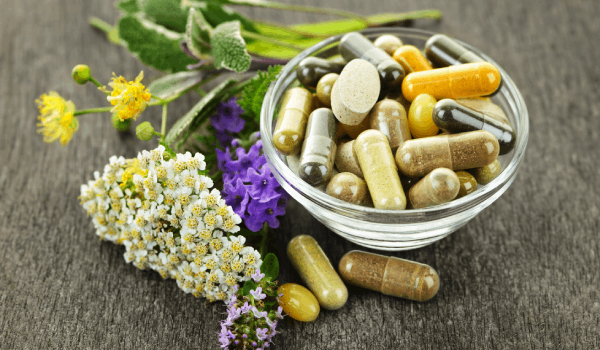
Herbal remedies have been part of healthcare for centuries and are widely used today for their natural healing properties. These treatments, rooted in traditional practices, target common ailments with ingredients often found in nature, such as plants, roots, and seeds. Whether you’re dealing with colds, digestive issues, or sleep troubles, specific herbs can help manage symptoms without heavy reliance on synthetic medications.
Herbal Remedies for Cold and Flu Relief
The common cold and flu bring symptoms like sore throat, congestion, and fatigue. Here are a few helpful herbs:
- Elderberry: Known for its immune-boosting properties, elderberry has antioxidants that may reduce flu duration.
- Echinacea: Often used to prevent colds, it may reduce symptom severity by supporting immune function.
- Ginger: Ginger tea can alleviate sore throats and nasal congestion due to its anti-inflammatory compounds. These herbs help manage symptoms and can be consumed in teas, syrups, or capsules for quick relief.
Herbal Solutions for Digestive Issues
Digestive problems like bloating, indigestion, or stomach cramps are common but manageable with herbs:
- Peppermint: Known for soothing stomach muscles, peppermint oil can reduce bloating and cramping.
- Ginger: Besides cold relief, ginger helps alleviate nausea and indigestion by speeding up stomach emptying.
- Chamomile: Chamomile tea is often used to ease indigestion and stomach discomfort, thanks to its calming effect on the digestive system. These remedies are easy to incorporate and can be a gentle approach to managing gut health.
Herbal Remedies for Sleep and Anxiety
Poor sleep and anxiety affect many people and can be managed naturally with calming herbs:
- Valerian Root: Often used for sleep issues, valerian promotes relaxation and can improve sleep quality.
- Lavender: Known for its soothing aroma, lavender oil or tea reduces stress and helps with sleep.
- Passionflower: This herb has mild sedative effects that can calm anxiety and improve sleep duration. Incorporating these into bedtime routines, such as with herbal teas or essential oils, can create a more restful sleep environment.
Herbal Pain Relievers
For mild to moderate pain, these natural remedies can offer relief:
- Turmeric: Containing curcumin, an anti-inflammatory compound, turmeric helps reduce joint pain and inflammation.
- Willow Bark: Known as a natural source of salicin, this herb has been used for centuries to treat pain and inflammation, similar to aspirin.
- Capsaicin: Found in chili peppers, capsaicin can be applied topically for arthritis and muscle pain relief. These herbs are especially useful for chronic pain management and may serve as alternatives to over-the-counter painkillers.
Herbal Remedies for Skin Irritations
Herbal remedies can also be useful for treating minor skin issues like rashes or eczema:
- Aloe Vera: Soothes irritated skin, helps with healing, and is popular for sunburn relief.
- Calendula: Often used in creams and ointments, calendula has anti-inflammatory properties that can help with eczema and minor cuts.
- Tea Tree Oil: Known for its antimicrobial effects, tea tree oil can treat acne and prevent infection in minor cuts. These remedies can be applied as gels or creams and are gentle on the skin, offering a natural approach to skincare
Natural Remedies for High Cholesterol
To support heart health, some herbs can naturally help manage cholesterol levels:
- Garlic: Known for lowering LDL cholesterol, garlic can also improve blood circulation and reduce blood pressure.
- Artichoke Leaf: Helps the liver break down cholesterol and can lower overall cholesterol levels.
- Psyllium Husk: Often used as a fiber supplement, psyllium can lower LDL cholesterol when consumed daily. These herbs are effective for heart health and can be taken as supplements or incorporated into a heart-healthy diet
Herbs for Improved Mental Clarity
To boost cognitive function and reduce brain fog, consider these herbs:
- Ginkgo Biloba: Known for its memory-enhancing effects, ginkgo helps improve blood flow to the brain.
- Rosemary: Stimulating blood circulation, rosemary has been associated with enhanced concentration.
- Ashwagandha: This adaptogen reduces stress and may improve focus and mental stamina. Using these herbs in teas or as supplements can enhance mental clarity, especially during stressful times.
How to Use Herbal Remedies Safely
While herbal remedies can support wellness, it’s essential to use them safely. Always consult with a healthcare provider, especially if you’re taking other medications. Begin with low doses and monitor for any side effects. Each person’s body responds differently, so finding the right herb and dosage may take time. Herbal remedies offer a gentler, holistic approach to health but work best when used mindfully and consistently.
This guide offers a starting point for those looking to incorporate herbal remedies into their routine for common health concerns.

